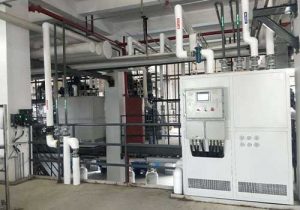heater for chemistry lab
What is a Heater for a Chemistry Lab?
A heater for a chemistry lab is a specialized device designed to provide controlled heating for various chemical processes and experiments. These heaters are essential in laboratories where precise temperature control is crucial for reactions, distillations, and other procedures. Chemistry lab heaters come in various forms, each tailored to meet specific heating needs and safety standards.

How Does a Chemistry Lab Heater Work?
The operation of a chemistry lab heater involves several key steps:
Heating Element: The core component of a lab heater is the heating element, which converts electrical energy into heat. This element is typically made of materials like stainless steel or ceramic to withstand high temperatures and corrosive substances.
Temperature Control: Lab heaters are equipped with precise temperature control mechanisms, such as digital thermostats or microprocessors, to maintain the desired temperature within a narrow range.
Safety Features: To ensure safe operation, these heaters often include safety features like automatic shut-off, over-temperature protection, and alarms to prevent overheating and potential hazards.
Heat Distribution: Depending on the type of heater, heat can be distributed through direct contact, convection, or radiation to ensure even heating of the substance.
Types of Chemistry Lab Heaters

There are several types of chemistry lab heaters, each suited to different applications and environments:
Hot Plates: These are flat, portable heaters with a heating surface on top. They are commonly used for heating beakers, flasks, and other containers. Hot plates often come with magnetic stirrers for simultaneous heating and mixing.
Immersion Heaters: These heaters are submerged directly into the liquid that needs to be heated. They are commonly used in large containers or tanks. Immersion heaters are known for their efficiency and ability to heat liquids quickly.
Mantle Heaters: These heaters are designed to fit around glassware, such as round-bottom flasks, providing even and consistent heating. They are commonly used in distillation and reflux setups.
Oil Baths: These heaters use a bath of oil to provide uniform and controlled heating. They are ideal for applications requiring precise temperature control and are often used in organic synthesis.
Sand Baths: Similar to oil baths, sand baths use sand as the heating medium. They provide even heating and are suitable for high-temperature applications.
Applications of Chemistry Lab Heaters
Chemistry lab heaters are used in a wide range of applications, including:
Chemical Synthesis: Many chemical reactions require precise temperature control to proceed correctly. Lab heaters provide the necessary heat to initiate and maintain these reactions.
Distillation: Distillation processes, such as simple and fractional distillation, rely on lab heaters to provide consistent heating for separating mixtures based on boiling points.
Sterilization: Lab heaters are used to sterilize equipment and media by maintaining high temperatures for specific periods, ensuring the elimination of contaminants.

Evaporation: In processes like solvent removal, lab heaters provide the heat needed to evaporate liquids, leaving behind the desired substances.
Crystallization: Controlled heating is essential in crystallization processes to achieve the desired crystal formation and purity.
Benefits of Using Chemistry Lab Heaters
The use of chemistry lab heaters offers several advantages:
Precision: Lab heaters provide precise temperature control, which is essential for accurate and reproducible experimental results.
Safety: Equipped with multiple safety features, these heaters minimize the risk of accidents and ensure safe operation in the laboratory environment.
Versatility: With various types and models available, lab heaters can be adapted to a wide range of applications and experimental setups.
Efficiency: These heaters are designed to heat substances quickly and efficiently, saving time and energy in laboratory processes.
Durability: Made from high-quality materials, lab heaters are built to withstand the rigors of daily use in a laboratory setting.
Conclusion
Chemistry lab heaters are indispensable tools in scientific research and experimentation, providing precise and reliable heating for a variety of applications. Understanding their functionality, types, and benefits can help users select the right heater for their specific needs, ensuring accurate and consistent results in their laboratory work. Whether for chemical synthesis, distillation, or sterilization, chemistry lab heaters play a crucial role in maintaining the desired temperature and enhancing the overall efficiency of laboratory processes.
Related recommendations
How to handle the overload of the 100 ton chiller water pump?
1248How to handle the overload of the 100 ton chiller water pump? 1、 Reason There are many reasons for the overload of the water pump of a 100 ton chiller, most of which are long eq...
View detailsThe Working Principle of Industrial Water-cooled Chiller
1187The Working Principle of Industrial Water-cooled Chiller Changes of refrigerants in refrigeration compressorsAccording to the working principle of the refrigeration compressor of the chiller...
View detailslaboratory water heater
490Introduction to Laboratory Water HeatersLaboratory water heaters, or water baths, are essential for a variety of applications in scientific research and medical testing. These devices provide a st...
View detailscooling chiller system
401Understanding Cooling Chiller Systems Definition of Cooling Chiller Systems A cooling chiller system is a refrigeration system designed to remove heat from a liquid or space through a vapor-...
View details
 LNEYA Chiller
LNEYA Chiller







HelloPlease log in